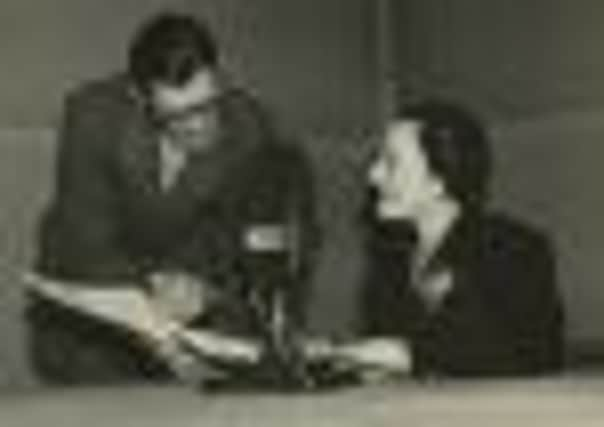Mike Shaw: BBC staff’s Capital idea for scaring a nation senseless


The BBC opened its station in Edinburgh on May 1, 1924. Glasgow and Aberdeen had opened the previous year to form a spine of “main” stations spreading northwards from London.
Edinburgh had joined other cities throughout the UK in demanding its own station and, after city councillors made personal representations to John Reith, the BBC’s General Manager, 2EH opened, with a concert held in the city’s Usher Hall.
Advertisement
Hide AdAdvertisement
Hide AdThe Edinburgh staff at 2EH, based in George Street and led by George L Marshall, were responsible on January 16, 1926 for producing a highly effective, spoof news report, Broadcasting the Barricades, transmitted to the whole of the UK. This predated by more than 12 years the famous Orson Welles production of The War of the Worlds that created panic among many listeners persuaded that a Martian invasion was under way.
Broadcasting the Barricades was a talk presented by Father Ronald Knox in the form of a set of news bulletins. The author was a respected commentator for the Catholic Church, crime fiction writer and renowned humorist.
The programme began fairly blandly with low-level news and sport, but soon switching tone with “breaking news” on crowd disturbances in Trafalgar Square. Their leader (by today’s standards in pantomime-style description) was said to be a Mr Popplebury, the Secretary of the National Movement for Abolishing Theatre Queues. Alternating between humour and standard news, an announcement was then given that the crowd was preparing to demolish the Houses of Parliament using trench mortars, with a further description of the Big Ben clock tower crashing to the ground.
Images come to mind at this point of the young Edinburgh staff giving it everything they had to deliver the groundbreaking military sound effects – doubtless yesteryear’s football rattles being pressed into service to simulate machine gun and small arms fire.
Knox concluded his talk by observing that Greenwich time would not be given that evening by Big Ben, but rather from Edinburgh on Uncle Leslie’s repeating watch.
All fairly harmless stuff you might imagine. George L Marshall had even taken the precaution of introducing the item with the kind of “health warning” very familiar to today’s listeners and viewers. But these were different times. The Russian revolution was then less than a decade old, the General Strike already in preparation, and nothing of this kind had ever been heard before by a population limited to print sources only.
There were miscellaneous genuine and doubtless exaggerated reports of public panic. Author Pat Walker describes the government of the Irish Free State making enquiries to discover whether it was true that the House of Commons had been blown up. Various civic leaders around the land were reportedly ready to call out the troops. Listeners allegedly complained of infirm relatives experiencing “the vapours”.
The BBC took all of this very seriously. Apologies were offered that same evening. John Reith called for a copy of the script but when he read it he took a strong stand. He said he was satisfied that listeners had been told what to expect and questioned those who were apparently taken in by what were clearly satirical references. He also appeared to care more about listener reaction than the comments of press or politicians. In his regular report to the BBC governors, he quoted figures to show that audience feedback was overwhelmingly positive. It was rumoured in Scotland that he was also impressed by the surge in applications for radio licences that followed.
Advertisement
Hide AdAdvertisement
Hide AdGeorge L Marshall must have experienced many sleepless nights until the crisis passed, but he went on to enjoy a successful career in broadcasting. Perhaps it’s now time that Edinburgh should recognise the Edinburgh staff responsible for a genuine “first” in the history of world broadcasting. It might also deliver a timely reminder of the unique ability of radio to surprise and amaze.
* Mike Shaw is a former editor of BBC Scotland
Rule the waves
THE BBC celebrates its 90th anniversary next year with an international reputation that was built in large part by the creativity of its Scottish staff.
BBC Scotland produced the first custom-made broadcast for schools, started the popular Lift Up Your Hearts broadcasts – a Thought for the Day for wartime listeners – and further aided the war effort through the “Radio Padre” slot which included coded messages for prisoners of war and the resistance.
The formative years of the corporation north of the Border have been recorded by David Pat Walker, a former assistant controller of BBC Scotland, who was instrumental in setting up what would become the Beechgrove Garden.
The BBC in Scotland: The First Fifty Years by David Pat Walker is published by Luath Press, priced £20